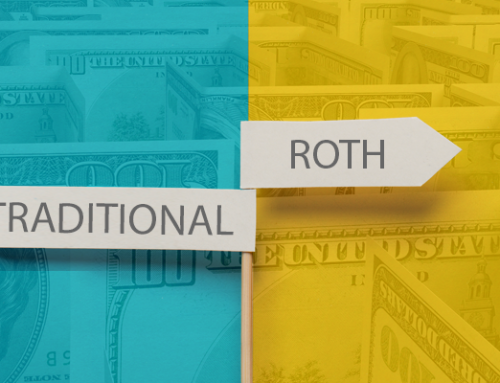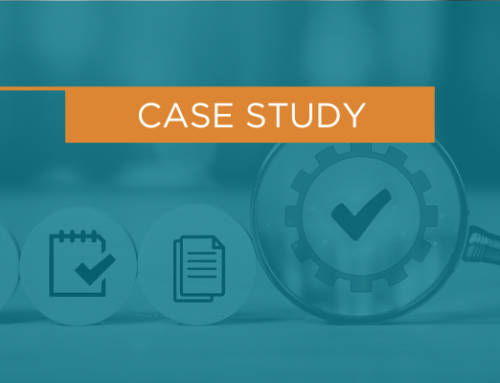By Brad Jones, CPA, CVA, CMA, CFF
In today’s economy, a non-core activity in your business — like your accounting function — must be as efficient as possible.
But with more and more accountants leaving the profession and fewer students enrolling in college-level accounting programs, it’s difficult to hire and retain qualified people to staff your finance and accounting functions.
That being said, it’s not surprising that our clients keep asking what they can do to address today’s talent gap and keep their accounting function lean at the same time.
One of the solutions our clients consistently want to discuss further is FAO — finance and accounting outsourcing.
What Is FAO?
FAO stands for finance and accounting outsourcing and happens when a business transfers some — or all — of its finance and accounting processes or functions to an external service provider.
Many companies find themselves spending more and more time and energy on their accounting function, but not realizing any incremental benefits from doing so.
As technology across other functions throughout the business continues to evolve at a rapid pace, it’s a constant challenge to align the accounting function. The department may struggle with antiquated systems and processes when performing simple tasks like the monthly close of the books.
Plus, tax departments — who should be focused on strategic tax planning initiatives — often spend too much time grappling with routine compliance tasks.
By outsourcing finance and accounting functions, a company can:
- Significantly improve back-office processes
- Simplify purchasing, sales, and employee expense reports
- Uncover more financial insights that can increase performance of the core business
- Focus more attention and resources on core areas of the business
- Spend more time on strategic tax planning
How Does FAO Work?
Until recently, for most businesses, the accounting department wasn’t a function that could be outsourced. The very nature of accounting made it extremely difficult to separate the accounting function from the operations being tracked and accounted for.
However, in today’s digital landscape, it’s possible — and, in many cases, advisable — to outsource the accounting department of most not-for-profit organizations and commercial businesses.
When you engage an accounting firm to handle your finance and accounting functions, you leverage the intellectual property of an expert team with deep pockets of industry experience.
No more hiring, training, or developing your staff.
Your outsource provider does all that for you. Plus, they incorporate best practices to streamline and drive efficiency for the entire process along the way.
FAO is more than simply moving the accounting function to the cloud. It’s about allowing your company to focus more time and energy on your core business.
In a nutshell, here’s what outsourcing can do for your organization:
FAO transforms and then operates the accounting and finance functions in a digitally powered environment so these functions uncover more insights and drive more efficiency.
From 30,000 feet, the FAO outsource provider can:
- Manage these functions in a fraction of the time you’re used to spending
- Help you leverage the information that’s now being generated to make better business decisions
Digging into the smallest details now, FAO can address all of your back office transactional accounting needs, including:
- General ledger
- Accounts payable
- Accounts receivable
- State and local taxes
- Cash management
- Payroll
- Time and expense management
You can then use the dashboards available on your desktop or mobile device to monitor your financials in real time — 24 hours a day, seven days a week, and 365 days a year.
Whether you are looking to grow your business, increase efficiency, or obtain specialized accounting knowledge, it’s wise to consider engaging an outsourced accounting team to address the problems they solve everyday.
What Types of Businesses Can Benefit from FAO?
A variety of businesses across several industries can benefit from outsourcing their accounting and finance functions, including:
- Not-for-profit organizations
- Government contractors
- Construction
- Healthcare
- Hospitality
Use Cases for FAO
In addition to the back-office support addressed earlier, use cases for FAO run the gamut. Below are a few examples:
- Manage disruption. FAO can help manage disruption as new technologies are incorporated into the accounting function.
- Transform numbers into insightful data sets. The right FAO provider will work with you to apply the detailed analytics necessary to make strategic decisions about what your clients want today and what they’re likely to want next month.
- Support for scaling. FAO can help streamline budgeting and forecasting processes and procedures so your company can easily adapt to changing demands as your business grows.
- Elevate the focus of your team. FAO can help you shift staff focus to higher-value tasks.
- Salesforce CRM integration. Your FAO can integrate your systems with the tool or provide you with information to decide if this is the right program for your company.
- Fill in the gap while you search for a new CFO or controller. Not sure you’re ready to outsource permanently? Many outsourcing providers can scope out a flexible arrangement that may or may not be permanent.
How to Find the Right FAO Provider
Running your finance and accounting departments is an onerous task — especially when budget and staff are limited.
Outsourced accounting can help ensure consistency and accuracy of bookkeeping and accounting. Plus, you can tap into specialized expertise usually unavailable within the constraints of small organizations and scarce resources. But, here’s the thing: you’ve got to find the right FAO provider.
To properly vet an FAO provider, check that the provider has:
- Experience. Be sure the provider has experience with clients in your industry and organizations of a similar size
- A proven tech strategy. Ask about the software and tools they use to manage finance and accounting processes. The provider should be able to explain how they plan to integrate with your existing systems, if needed.
- The ability to scale with you. Ask about how they will accommodate your future growth, e.g., increase in transaction volume, additional processes, or expansion into new markets.
- Data security and compliance protocols. Assess the provider’s data security protocols, adherence to regulatory requirements, and compliance certifications.
When you work with PBMares, you can expect us to check all the boxes above. You can also expect us to provide:
- A highly disciplined and structured process
- A team with specialized industry expertise
- A completely virtual, paperless, and non-intrusive experience
Learn More
Contact Brad Jones today to learn more about what you and your organization can accomplish when you outsource your accounting and finance functions.





